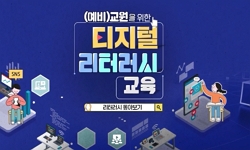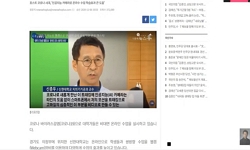The present research aims to investigate critically into the market-mediated and profit-oriented circulation of knowledge, explore the underlying relations between the humanities and knowledge sharing, search for the ways that ‘knowledge commons’...
http://chineseinput.net/에서 pinyin(병음)방식으로 중국어를 변환할 수 있습니다.
변환된 중국어를 복사하여 사용하시면 됩니다.
- 中文 을 입력하시려면 zhongwen을 입력하시고 space를누르시면됩니다.
- 北京 을 입력하시려면 beijing을 입력하시고 space를 누르시면 됩니다.
인문학과 지식공유: 시민 참여 모델의 개발
한글로보기https://www.riss.kr/link?id=E1677298
- 저자
- 발행기관
-
발행연도
2022년
-
작성언어
Korean
- 주제어
-
KDC
300
-
자료형태
국가정책연구포털(NKIS)
-
0
상세조회 -
0
다운로드
부가정보
다국어 초록 (Multilingual Abstract)
The present research aims to investigate critically into the market-mediated and profit-oriented circulation of knowledge, explore the underlying relations between the humanities and knowledge sharing, search for the ways that ‘knowledge commons’—or the shared governance of knowledge—can be realized in the field of the humanities and, albeit partly, social sciences, and then recommend policies that provide public access to knowledge in those fields. In so doing, this research gives two possible examples in terms of Open Access (hereafter OA) policies and knowledge sharing platforms which can be launched in a foreseeable future. It also suggests the roles of governments and/or the structure of public-private governance for establishing those platforms.
The work consists of four projects which are mutually complementary. The first project is to justify the meanings and values of knowledge in the humanities. Building knowledge commons requires not only a change in the awareness of policy makers and their final decision, but further the consent which is manufactured in a civil society. For this reason, the first project places the raison d’être of the humanities, their new mode of existence and OA as a mode of knowledge commons in the context that professional researchers and citizens—which have been thus far divided into expert people and lay people—mutually cooperate in producing and circulating knowledge. The second project examines both the issues in OA that have been debated in academic circles and conditions for building knowledge sharing platforms. In particular, this project highlights the participation of both researchers and citizens in those platforms that has been taken for granted. On this basis, it suggests the governance between the government, researchers, citizens and academic associations. Also, it calls for building multi-functional platforms that go beyond the extant types of OA repositories. In this context, it argues that the new platforms for knowledge sharing must provide not only repositories for an extant body of literature, but also journal websites, an online journal management system, production service for publishers, an information sharing system and the like.
The third project gives a more detailed business model to build and manage a platform for sharing journal articles, pre-copy-edited articles and their pre-print versions. In particular, it indicates that the extant forms of OA models, such as gold OA and green OA, have radical shortcomings and, in turn, suggests an alternative business model that integrates, and goes beyond, the two existing models. Not only does the alternative model give incentives to academic associations in the humanities, but also allows researchers, non-academic intellectuals, students, a social enterprise and citizens to participate in governing such a platform and producing new bodies of knowledge. Also, it seeks to support transiting journals into OA publishing and to provide multi-functional services for academics and citizens. The fourth project examines the possibility of knowledge sharing in a Wikipedia format and illustrates an example of Wikipedia for the humanities. This attempt reflects a phenomenon that the objects of knowledge sharing have been extended from ready made bodies of knowledge, such as journal articles, to raw data. In this context, the fourth project explores a change in the culture of knowledge sharing and preliminarily constructs a possible model for the system of data-based knowledge production-circulation-consumption in which citizens can also participate. In brief, it seeks to explore an entirely novel mode of knowledge system in the digital age that operates horizontally and multi-directionally, thereby enhancing the public values of the humanities.
국문 초록 (Abstract)
본 연구는 독과점적 지식유통에 대한 비판적 문제제기와 오픈액세스(Open Access)에 대한 공감대 형성을 바탕으로, 인문학과 지식공유의 근원적 관계를 검토하고, 또한 지식 커먼즈를 실현할 ...
본 연구는 독과점적 지식유통에 대한 비판적 문제제기와 오픈액세스(Open Access)에 대한 공감대 형성을 바탕으로, 인문학과 지식공유의 근원적 관계를 검토하고, 또한 지식 커먼즈를 실현할 수 있는 구체적ㆍ정책적 방안을 모색하는 것을 목표로 한다. 이에 본 연구진은 한국적 상황에 걸맞은 오픈액세스 정책 및 지식공유 플랫폼의 예시와 그 구축ㆍ관리 방안을 모색할 것이다. 특히, 연구진은 인문(사회과)학 분야에서 어떠한 플랫폼이 가능하며, 그러한 플랫폼의 구축과 관리를 위해서는 어떠한 지원과 민ㆍ관 협력이 필요한지를 제시한다.
본 연구의 주요 내용은 다음과 같다. 제1세부과제에서는 인문학적 지식의 의미와 가치 그리고 지식공유의 필요성을 이론적으로 정당화한다. 지식공유 플랫폼의 구축을 위해서는 정책 결정권자들의 인식 변화와 결정만이 아니라 시민사회의 동의를 필요로 한다. 시민사회의 인식변화를 인문학의 의미와 가치의 새로운 존재 방식, 시민들의 요구에 부응하는, 시민들이 참여할 수 있는 지식공유의 필요성, 인문학적 지식의 공동생산과 지식공유의 관계, 다성적 이야기로서의 인문학적 지식과 그 지식을 활성화하는 데 있어 시민과 인문학자 간 공동작업의 가능성 등의 맥락에서 논의한다.
제2세부과제에서는 학술 지식 오픈액세스라는 학계의 현안을 중심으로 지식공유 플랫폼의 조건을 검토한다. 지식공유 플랫폼은 연구자의 요청, 정부의 지원, 시민의 참여에 근거하여 설계되어야 한다. 따라서 연구자-정부-시민의 거버넌스 및 학회간 협의체가 지식공유 플랫폼 설계의 주체가 되어야 한다. 또한 지식공유 플랫폼의 구성 요소로 지식공유 플랫폼이 오픈액세스 학술정보의 안정적 제공, 전주기 투고-출판 플랫폼, 학문분야별 학술정보 공유 체계 등이 필요하다는 점을 요청하였다.
제3세부과제는 인문사회 논문공유 플랫폼의 구축 및 운영 방안을 제안한다. 이러한 플랫폼은 정부나 준정부기관만이 아니라 학회, 연구자들, 기자들, 교사들, 학생들, 사회적 기업 그리고 일반 시민들의 광범위한 참여를 보장한다. 또한, 그것은 개별 학회들의 오픈액세스 전환이나 리포지터리(repository)의 구축을 넘어서는 서비스의 제공을 목적으로 한다. 나아가, 그러한 플랫폼의 구축 및 자립화는 총 4단계에 걸쳐 시행된다. 이러한 플랫폼 구축에 있어서 남겨진 과제는 초기 자금의 확보이며 이에 정부나 준정부기관의 적극적인 지원을 요청한다.
제4세부과제에서는 디지털 기반의 지식공유 플랫폼의 모델을 제안하고, 그 가능성을 이론적·기술적으로 설계한다. 지식에서 데이터로, 앎을 공유하는 형태의 전환, 소유와 기성(旣成)에서 점유와 조립(組立)을 기반으로 하는 지식공유 문화의 변화를 검토하면서 시민 참여의 관점에서 데이터 기반 지식 생산-유통-소비 및 인문지식 선순환 체계 수립 가능성을 모색한다. 아날로그 환경에서 분과 단위의 학회 및 학술지를 중심으로 이루어져 온 지식 편찬 및 유통 체계가 ‘시민을 위한 지식 제공’의 일방적 프로세스였다면, 디지털 환경에서 데이터로 편찬되고 공유되는 지식의 공론장은 ‘시민에 의한 지식 확산’의 쌍방향적 프로세스로서 공공성을 더욱 확대하는 계기로 작용하도록 함을 강조하였다.
국가적인 오픈액세스 선언, 디지털집현전 사업 그리고 블록체인ㆍNFT 기술 등의 출현 등 학술생산의 사회적ㆍ기술적 환경은 계속 변화하고 있다. 학문발전과 경쟁력 강화를 위해 이 같은 지식 생산의 조건과 유통에 대한 정책 연구는 쉼 없이 계속되어야 한다.
목차 (Table of Contents)
- 1. 연구 배경
- 2. 연구 목적
- 3. 선행 연구 검토
- 4. 연구 구성
- 5. 연구 내용
- 1. 연구 배경
- 2. 연구 목적
- 3. 선행 연구 검토
- 4. 연구 구성
- 5. 연구 내용
- 6. 결론











